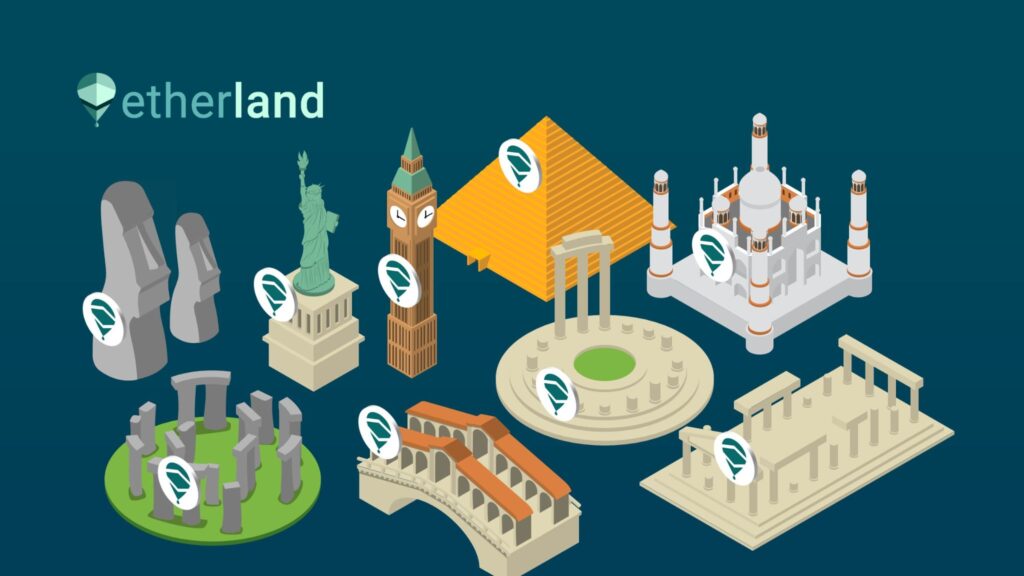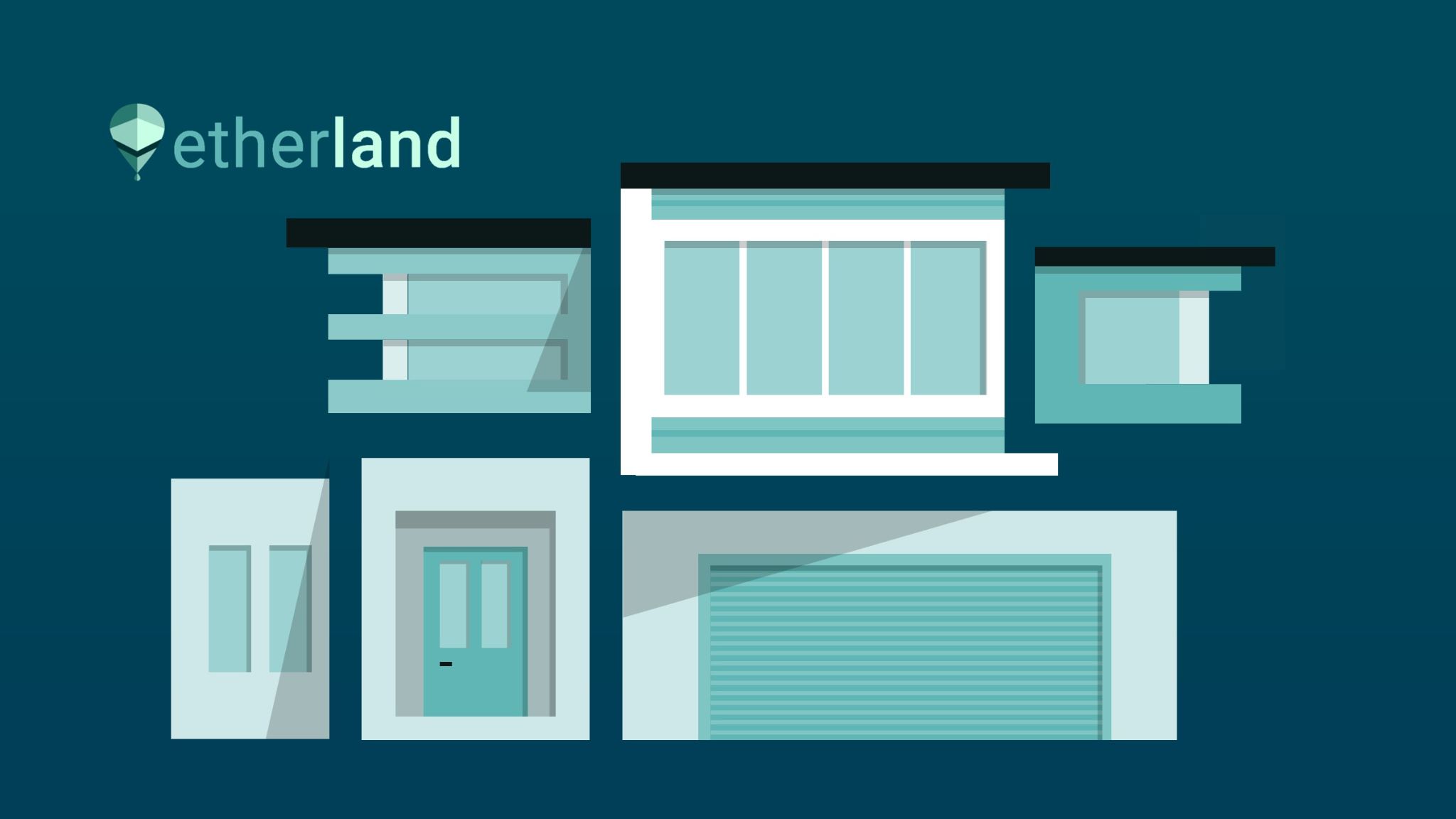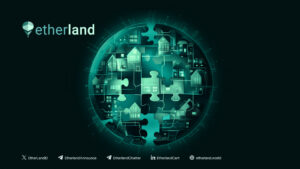The potential of Web3 technologies to reshape the real estate industry is undeniable. This potential is underscored by the Boston Consulting Group’s prediction that the tokenized asset market could reach a staggering $16 trillion by 2030, with real estate poised to take a sizable share. Often, the conversation centers on fractional ownership or tokenizing properties.
However, Web3’s power lies in addressing the industry’s fundamental challenges. Etherland offers solutions in this space, delving deeper than simple tokenization with on-chain document management, secure data storage, and transparent information exchange. Let’s explore how Web3 and Etherland can offer substantial advancements for the real estate industry and other RWA markets.
The Limitations of Traditional Real Estate
The real estate industry is plagued by inefficiencies that hinder its full potential. Outdated paperwork systems lead to bureaucratic delays, while fragmented and sometimes unreliable data can make transactions cumbersome. A lack of transparency can create uncertainty for buyers and sellers. These limitations often result in higher costs, restrict access to investment opportunities, and stifle innovation within the sector.
The National Association of Realtors (NAR), in their 2021 “Real Estate Business and Technology Trends” report, found that 72% of real estate professionals believe technology can significantly improve the efficiency of back-office tasks. Other similar reports have also reflected the frustrations of professionals in the sector with the heavy paperwork burden, unreliable property ownership data, and the lack of access to reliable databases.
The slow and convoluted nature of traditional real estate transactions translates into missed opportunities and untapped potential. Etherland aims to overcome these challenges.
Etherland: Moving The RWA Narrative Beyond Fractionalization
While fractionalization often grabs the spotlight, Web3 technologies hold the potential to address the deeper inefficiencies plaguing the real estate industry. Etherland has found that blockchain’s ability to provide secure storage for documents, create immutable records of transactions, and facilitate the execution of smart contracts offers a new paradigm for managing and interacting with real-world assets.
Consider the cumbersome processes involved in property transactions. Stacks of paperwork, manual verifications, and reliance on multiple intermediaries add friction and cost to the process.
Web3 solutions can streamline these workflows through secure digital documents, enabling efficient collaboration and transparency. Tamper-proof records on the blockchain establish a trusted history for a property, reducing the risk of disputes and delays.
Here’s how Etherland is bringing this vision for Web3 real estate to life:
The ProApp: Secure Workflows, Reliable Data
- The ProApp provides a secure environment where sensitive real estate documents (deeds, titles, appraisals, etc.) can be stored with industry-grade encryption.
- Smart contracts and efficient collaboration tools streamline workflows, minimizing delays often associated with traditional real estate processes.
- This enhanced efficiency and secure storage translate into quicker transactions, lower costs, and greater peace of mind for all stakeholders.
Estatepedia: RWAs for Cultural Preservation
- Estatepedia leverages the immutable nature of the blockchain to link NFTs with detailed information, historical data, and even 3D models of landmark sites.
- Securely preserving this information through Estatepedia safeguards cultural heritage and creates the potential for community engagement and innovative fundraising efforts.
- This application highlights the versatility of blockchain technology for real-world asset management, extending beyond simply representing ownership.
While the project’s focus is currently on real estate and heritage sites, the technology can be adapted to meet the needs of any RWA market where blockchain technology can provide valuable solutions.

The Potential Use Cases Of Etherland’s RWA Technology
Etherland’s foundation of secure data and reliable records opens doors for numerous innovative RWA use cases within the real estate sector and beyond. Here are a few key possibilities:
Supply Chain Management
Etherland’s emphasis on secure data storage and tamper-proof records could be applied to supply chain management for valuable physical goods. Consider a scenario where high-end electronics components are tracked throughout their journey from manufacturing to assembly.
Each component could be linked to an NFT, securely recording its origin, movement, and ownership changes on the blockchain. This creates an immutable audit trail, helping manufacturers verify the authenticity of parts, combat counterfeiting, and optimize the supply chain for efficiency and transparency.
Improved Ownership Tracking
RWA technology can significantly improve ownership tracking of just about any asset. The current reliance on centralized databases and paper records can create discrepancies. By securely recording asset title information and transactions on the blockchain, RWA technology offers a tamper-proof, easily accessible history for any asset – simplifying due diligence and minimizing the risk of ownership disputes, especially in countries with less advanced private property frameworks.
Real Estate Fundraising Platforms
While Etherland’s focus isn’t on fractionalizing ownership, its data-centric solutions could still create new possibilities for real estate fundraising. Consider a developer using Estatepedia to securely store detailed project plans, architectural renderings, and financial projections linked to an NFT. This immutable record of project data can build trust with potential investors, enhancing transparency and facilitating more informed decision-making within the fundraising process.
These use cases represent a glimpse into the potential of Etherland’s technology. As Etherland’s solutions continue to develop following the completion of the Tecra Space campaign and as the broader Web3 ecosystem matures, we can expect even more innovative ways to leverage real-world asset data for increased efficiency, accessibility, and transparency across various industries.
Final Thoughts on Looking Beyond The Fractionalization Narrative
Inefficiencies and a lack of transparency burden traditional real estate processes. While Web3’s potential is frequently linked to fractionalization, its actual value lies in addressing these core challenges. Etherland’s focus on secure data management, reliable record-keeping, and streamlined workflows lays a solid foundation for innovative RWA solutions.
These blockchain-based tools have the potential to revolutionize how we interact with real estate, streamlining transactions, improving ownership tracking, and unlocking new fundraising and investment models. As Etherland’s technology further develops, we can expect its impact to extend far beyond the real estate sector, finding valuable applications across various industries.






